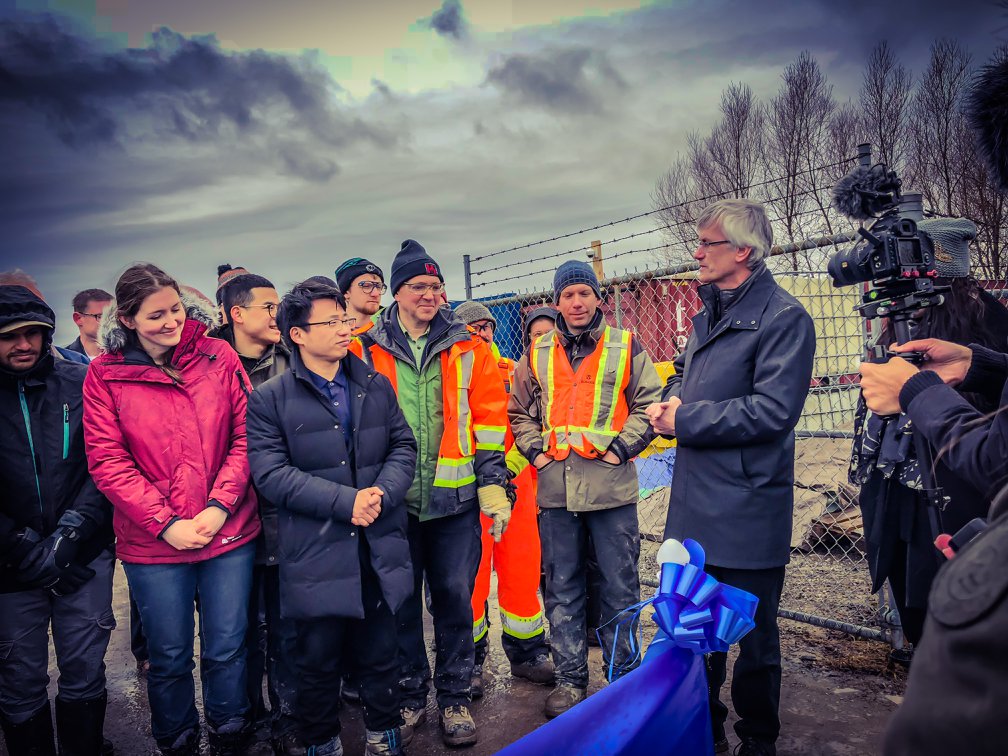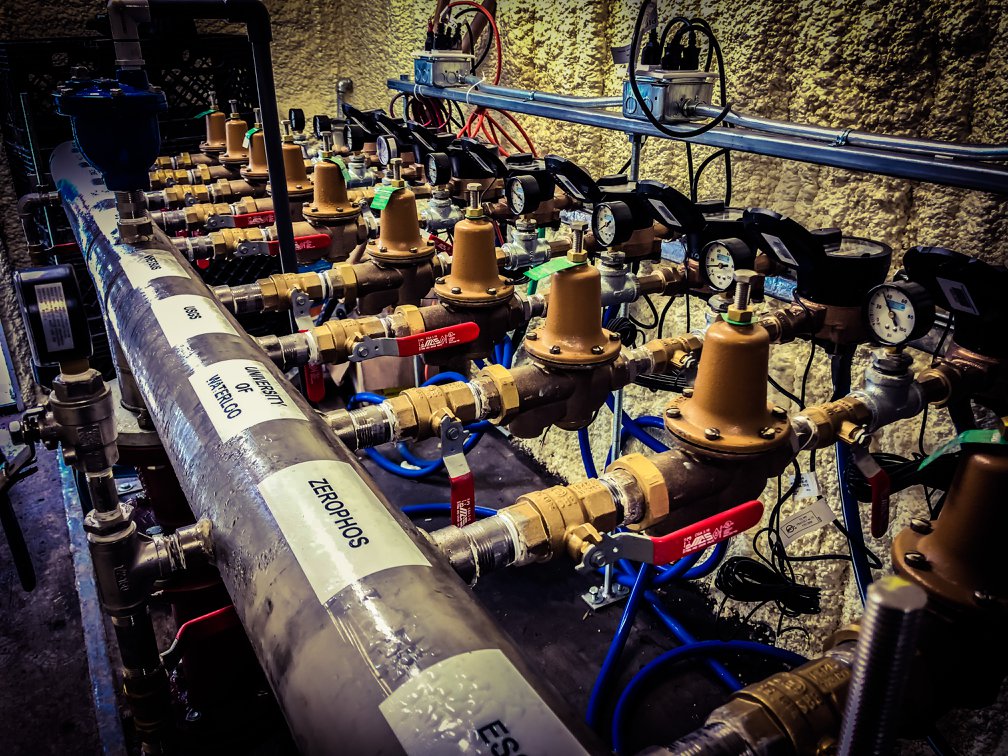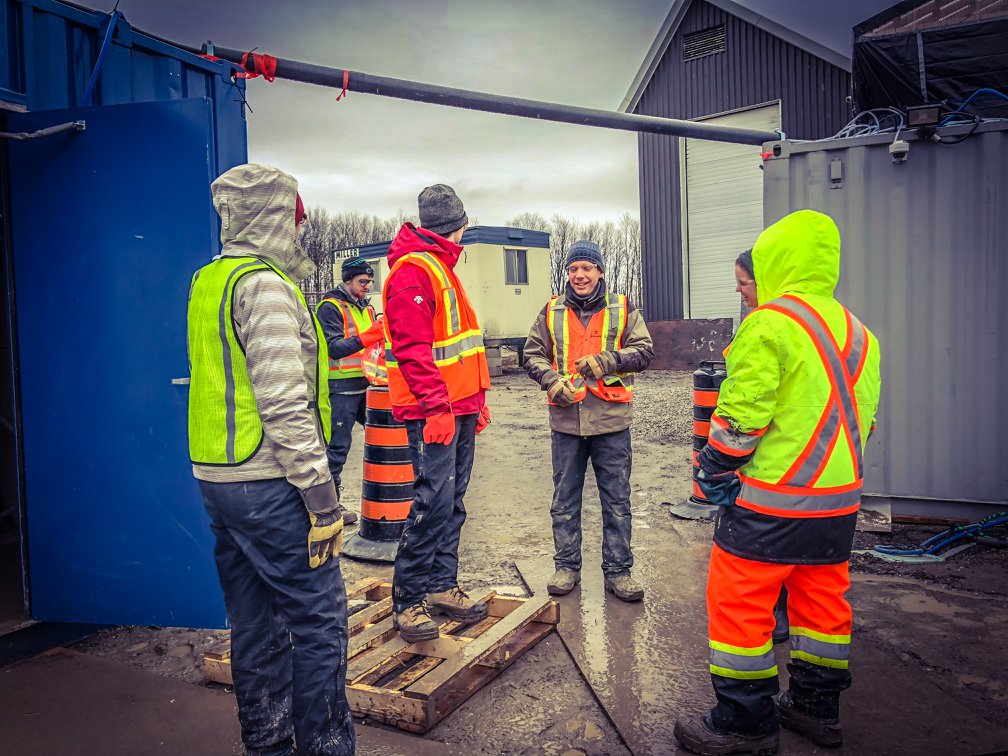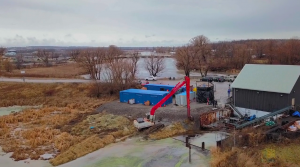 For the last few months, Ontario’s Holland Marsh was the site of a worldwide competition targeting phosphorus water pollution, which creates harmful algae blooms in freshwater bodies around the world.
For the last few months, Ontario’s Holland Marsh was the site of a worldwide competition targeting phosphorus water pollution, which creates harmful algae blooms in freshwater bodies around the world.
The grand prize? $10 million from The Everglades Foundation.
Algae blooms are a serious global problem that require a serious innovative solution. Excess phosphorous, The Everglades Foundation explains, is largely the result of untreated wastewater and agricultural runoff, which can threaten water supply and damage ecosystems. The $10 million George Barley Water Prize will go to the team that comes up with the most cost-effective, scalable technology to remove and recover phosphorus from freshwater bodies.
The four-year, four-stage competition (which gives time for development, testing and production) just finished Stage 3—the Pilot Phase—in Bradford, Ontario.
“The 90 days we spent on Ontario’s Holland Marsh conducting the Pilot Phase really defined the energy and passion behind The George Barley Water Prize,” shares Loren Parra, Director of The Prize.
“We wanted the third stage of the prize to prove the durability of the technologies, so that if released to market, they could operate in the coldest winter conditions,” Loren explains. “Naturally, we looked to Canada for support, and were welcomed by the Ontario Ministry of the Environment, Conservation and Parks, the Town of Bradford West Gwillimbury and the Township of King.”
Among the 104 teams from 13 different countries that initially applied to the competition, an independent panel of expert judges selected the top 10 most promising teams to come to Bradford for the Pilot stage. The teams have just finished working to prove their technology’s ability to remove phosphorous in cold water climates.
The results are currently under review by the judges, and the top 4 performers, who will each receive $125,000 and advance to the fourth and final stage, will be announced in October. In addition to the $10 million top prize, there are multiple sub-prizes awarded throughout the competition.
“This is exciting to have had the Holland Marsh chosen as the site for the Pilot,” shares Avia Eek, a Holland Marsh farmer and GHFFA Board Member. “Teams working locally to find an international solution.”
“Phosphorous is not just a ‘local’ problem, but an international one,” Avia explains, “so it was really interesting talking with the competitors from Idaho University, Florida, the Netherlands, China, Waterloo, etc., on site at the Art Janse Pumping Station, and learning about their technologies for removal/capture of phosphorous.”
The Holland Marsh was chosen as the pilot site because of its challenging environment, experiencing both cold temperatures and warm climates, and, as Lead Technician Nicole Gibson explains in this video, it’s a problematic area for phosphorous accumulation, making it the “perfect test” for the prize.
Avia reminds us that phosphorous is a finite resource. “So, to me,” she adds, “The George Barley Water Prize has the potential to solve two issues: 1) phosphorous removal from waterways, and 2) phosphorous capture for reuse in agriculture.”
The final stage will kick off at the start of 2020. The Pilot Phase qualifiers will then compete against each other for 14 months.
“This is like American Idol for science geeks,” says Derek Davy of Toronto-based ECONSE Water Purification Systems, Inc, who are among the top 10. Prior to the competition, ECONSE was also working with the Holland Marsh Growers’ Association on other environmental initiatives.
They are one of two Canadian companies that advanced to the Pilot Phase, along with the University of Waterloo PhosphexTM team. You can read more from the Waterloo team here.
The 10 teams that competed in Bradford are:
- ECONSE Water Purification Systems, Inc.
- MetaMateria Technologies, LLC.
- Green Water Solution, Inc.
- RePleNish
- Global Phosphate Solutions
- U.S. Geological Survey Leetown Science Center
- University of Idaho Nexom Clean Water Machine Team
- Wetsus NaFRAd ULTRA
- University of Waterloo
- ZeroPhos
“We’re back in Florida now,” Loren tells us, “combating an almost annual spell of algae blooms. And as we move forward with judging results from the Pilot, it’s crystal clear that this global crisis extends beyond borders and will require the innovation and hard work of many.”
It’s also crystal clear that this Prize will yield significant results for the health of our freshwater ecosystems.
Bravo to all who are participating!
Stay tuned as the competition advances, and learn more about global freshwater phosphorus pollution on the Barley Prize Website.

